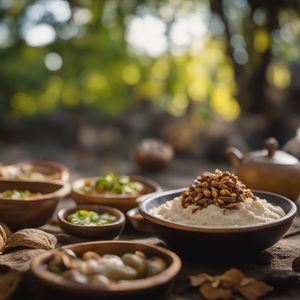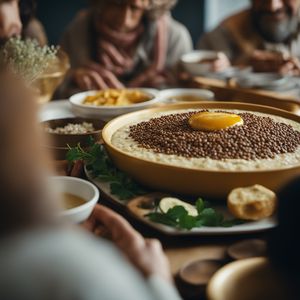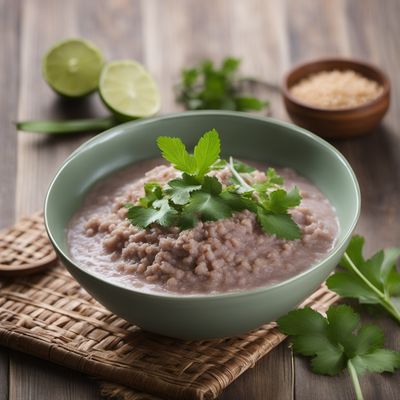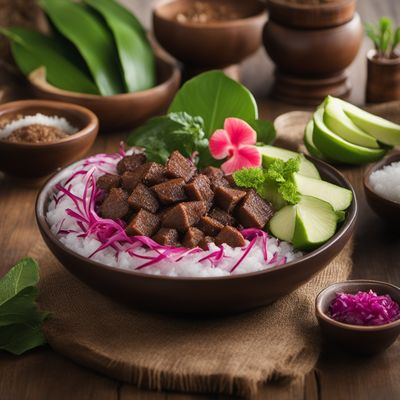
Dish
Poi
Poi is made by steaming or baking taro root, then mashing it into a smooth, sticky paste. It has a slightly sweet, nutty flavor and a purple-gray color. Poi can be eaten on its own or used as a dip for other foods. It is high in carbohydrates and fiber, and is a good source of vitamins and minerals.
Origins and history
Poi has been a staple food in Hawaii for centuries, and is considered a symbol of Hawaiian culture. It was traditionally made by pounding taro root with a stone pestle and wooden board, a process known as poi pounding. Today, poi is still made using traditional methods, but is also available in pre-packaged form in many grocery stores.
Dietary considerations
Poi is gluten-free and vegan, but may not be suitable for those with allergies to taro root.
Variations
There are many variations of poi, including sweet poi made with added sugar, and poi made with other root vegetables such as yams or sweet potatoes. Some recipes also call for the addition of coconut milk or other flavorings.
Presentation and garnishing
Poi is traditionally served in a large bowl, with a depression in the center for a small amount of melted butter or coconut cream. It is often garnished with fresh fruit or flowers.
Tips & Tricks
To make poi, it is important to use high-quality taro root and to steam or bake it until it is fully cooked. The consistency of the poi can be adjusted by adding more or less water during the mashing process.
Side-dishes
Poi is often served with other Hawaiian dishes such as kalua pig, lomi salmon, and haupia. It can also be used as a dip for vegetables or crackers.
Drink pairings
Poi pairs well with tropical fruit juices such as pineapple or mango, as well as light beers or white wines.
Delicious Poi recipes
More dishes from this category... Browse all »

Acorn Mush
Native American cuisine

Ajdova kaša
Slovenian cuisine

Ajdovi žganci
Slovenian cuisine

Babor
North African cuisine

Banosh
Ukrainian cuisine

Bogobe jwa lerotse
African cuisine

Bohinjski žganci
Slovenian cuisine

Broodpap
Dutch cuisine


